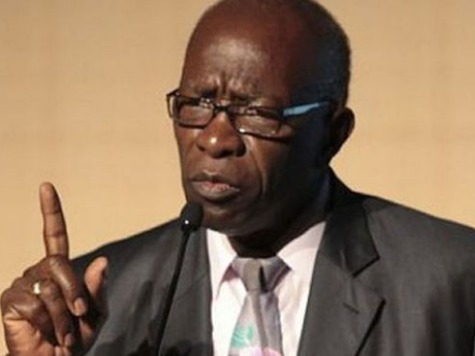
An investigation by the UK Telegraph has revealed that the former Vice President of FIFA, Jack Warner, received suspicious million-dollar payments from a Qatari company controlled by a former football official, leading to speculation that the nation bribed FIFA to win their successful 2022 World Cup hosting bid.
According to the Telegraph, Warner received $1.2 million from a company owned by Mohamed Bin Hammam, an executive member of FIFA, days after Qatar won its bid to host the 2022 World Cup in 2011. Warner’s sons and a former employee were paid an additional near million dollars — $750,000 to his two sons and $400,000 to an employee — totaling almost $2 million to Warner and his associates shortly after the successful Qatari campaign to host the tournament.
The records in possession of the Telegraph contradict each other as to the reason for the payments. One document claims that the payments were “to offset legal and other expenses;” another that “professional services” were provided to Bin Hammam’s company.
Warner is no longer with FIFA, thanks to a series of allegations of corruption that led to his resignation. Warner had voted for both successful bids in upcoming years: Russia 2018 and Qatar 2022, and both implicated Warner in corruption. Warner was accused of requesting business favors from countries during the 2018 deliberations by a parliamentary committee in the UK investigating why that country lost their bid. In 2011, Warner was accused of helping Bin Hammam bribe Caribbean football officials; FIFA found “compelling” evidence of corruption.
At the time, Bin Hammam was running to become president of FIFA against incumbent Sepp Blatter. He lost the bid, and was banned from FIFA for life shortly after in relation to the corruption charges that brought down Warner over the Caribbean Football Union. The ban includes “all football-related activities.”
Despite the rampant accusations of corruption on all sides of this story even before the claim that Qatar bribed its way to an unlikely victory, Qatar’s World Cup Committee has denied any corruption in the bid to host the Cup. “The 2022 Bid Committee strictly adhered to FIFA’s bidding regulations in compliance with their code of ethics,” the Committee declared, while adding that they were “unaware of any allegations surrounding business dealings with private individuals.”
Qatar’s World Cup bid has been among the world’s most controversial, as the nation combats rampant accusations of human rights violations and a call to boycott the tournament. Qatar entered the hosting competition an underdog; with summer temperatures soaring into the triple digits regularly, the climate has been said by many to be unsafe for 90 minutes of rigorous soccer play, and FIFA has suggested moving the 2022 tournament into winter.
The climate concerns pale in comparison to those that the government of Qatar is using what the New York Times called “virtual slaves” to build the soccer stadiums and athlete facilities necessary for the game. The Times’ investigation found that almost 90% of the country’s population consists of migrant workers from much of Asia, who find themselves with little food, living in squalor and working unreasonable hours without pay. Their pay withheld for months often, many of these workers die of starvation, unable to leave the country without their salaries or feed themselves. The Times predicts at least 4,000 will die in this manner before 2022 at the current rate.
Qatar’s government also has similar anti-LGBT laws as those protested against in the 2014 Sochi Olympics in Russia. FIFA President Sepp Blatter joked about these laws, telling athletes to “refrain from any sexual activities” to avoid arrest, while FIFA Secretary General Jerome Valcke argued that “less democracy is sometimes better to organize a World Cup.”
Having left many scratching their heads at the possibility that Qatar could be a successful host for the 2022 World Cup, the new allegations of bribery appear to explain away doubts about what could have convinced FIFA officials to host one of the world’s biggest sporting events in a repressive dictatorship with a jarringly inhospitable climate.

COMMENTS
Please let us know if you're having issues with commenting.